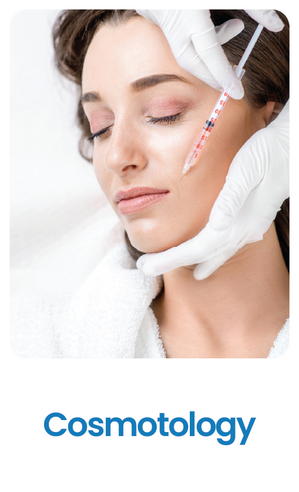Tattoo Removal
For those who want to get rid of tattoos can be achieved in many ways with different techniques from chemical peels to even surgical excision based on the requirement of the patients’ needs, condition of the skin, and suggestion by cosmetic doctor expert at SurgiDerma.

Laser Tattoo Removal Technique
Tattoo removals with the laser technique procedure have become common. Tattoos consist of ink particles are broken using a high-intensity light beam. Based on the laser wavelengths to target pigment or other colors, selected lasers are used to break up these particles. Laser treatments target ink particles causing smaller particles to make it easier to disperse these particles. However, complete removal of a tattoo cannot be done in a single session. It can be accomplished using multiple sessions of laser treatment.
You can get to know by consulting with an experienced cosmetic doctor who can evaluate your tattoo. Depending on the tattoo design, color, and size, the number of laser treatment sessions are discussed.
Each session requires at least a six-week time that makes way for the wound healing process and the body to absorb ink.
Risks and Complications associated with the laser tattoo removal treatment will be discussed during the scheduled VIDEO CONSULTATION. The procedure might be painful, but your doctor will prescribe the pain killer if there is excess pain.
Immediately after the procedure, the patient will be advised to strictly follow instructions and take care of the wound. Icepack to soothe is given to apply to the treated area. The wound can be cleaned using soap and water daily. Apply antibiotic ointment to the wound prescribed by the doctor.
Laser tattoo removal is less invasive than other tattoo removal methods such as dermabrasion, chemical peels, and surgical excision.
Tattoo Removal Dermabrasion
Dermabrasion is one of the tattoo removal techniques, and it is a surgical method. It involves medical grinding tool to remove the outer layers containing the ink particles, eventually removing the tattoo.
Like the laser technique, this procedure is also painful and typically local, or even general anesthesia is given.
Dermabrasion also requires multiple sessions to remove the tattoo. If not treated under the specialized doctor, significant scarring may appear. Hence, the experienced cosmetic specialist can make scarring minimize and fewer complications.
Aftercare is similar to laser tattoo removal as the wound needs care and strictly follow instructions.
The treated wound typically take longer to heal, might take 2 weeks or more.
Tattoo Removal Chemical Peels
Chemical Peels with Trichloroacetic acid (TCA) can also be used to remove tattoos. It is a mild acid, applied to the skin to remove outer layers of the tattooed skin. Usually, this procedure might be painful but can be performed without anesthesia.
Aftercare procedure is similar to other tattoo removal techniques. Gently applying soap and water to cleanse the affected wound helps in maintaining the wound. Also, the doctor will prescribe antibiotic ointment and a dressing. Usually, the wound will heal in 1 week or so.
Tattoos Removal Surgical Excision
Tattoos can also be removed using the surgical method. Surgical excision is done by making incisions containing only the skin with tattoos. However, this type of procedure is best done for tattoos that are small and may not be suitable for very large tattoos. The surrounding skin of the tattoo is brought together and closed.
This type of procedure is usually performed using local or sometimes even general anesthesia based on the size of the tattoo. The surgical scar will be visible.
After the procedure, bandages should be left at least for 48 hours. Once the bandages are taken, gently wash with soap and water. The doctor will apply a dressing to cover the wound.
Video Consultation
Candidates who are looking to remove tattoo are ideally suited. However, one has to be physically fit and have realistic expectations. Consult with a board-certified cosmetic surgeon at SurgiDerma to discuss various techniques of tattoo removal and procedures.
Your doctor evaluates your health as a treatment protocol, discuss various options, and the outcome of the tattoo removal result. Make sure to ask all the questions to your doctor and expectations.
Potential Risk and Complications
Every treatment has certain complications and with tattoo removal, risks associated include infection, scarring, poor wound healing, discoloration of the skin, etc.






